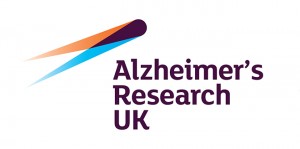
New research in the US suggests that changes in the eye could help indicate if someone has Alzheimer’s disease. The findings were published in Ophthalmology Retina.
The researchers investigated whether changes to blood vessels in the retina – the light-sensitive layer at the back of the eye – could be an early sign of the disease.
Researchers compared retinal photos from 39 people with Alzheimer’s, 37 people with mild cognitive impairment and 133 people without memory problems.
Mild cognitive impairment is used to describe early thinking and memory problems in older people but is not a disease in itself. One cause of MCI, however, can be the early stages of Alzheimer’s disease or another form of dementia.
The research team used a powerful imaging technique to look for changes in the blood vessels between the sets of eyes.
They found people with Alzheimer’s had a lower density of blood vessels in the retina. The team also found that a layer of nerve cells in the retina was thinner in people with Alzheimer’s than in those with MCI or without memory problems. There was less different between MCI and controls.
Dr Rosa Sancho, head of research from Alzheimer’s Research UK, said: “We know that diseases like Alzheimer’s begin in the brain decades before symptoms like memory loss start. Although there is currently no single test that can accurately give an Alzheimer’s diagnosis, brain scans, cognitive assessments and spinal fluid tests can all reveal clues to the disease.
“While eye tests could potentially be an inexpensive way to help diagnose Alzheimer’s, this small study used a new imaging method that is not part of a standard eye tests. The eye tests were also not directly compared with any current cognitive assessments used to diagnose Alzheimer’s so we don’t know if using this test would help make a more accurate diagnosis.
“Used alone this test would be unlikely to give a diagnosis and much larger studies are needed to better understand how changes in the eyes’ blood supply relate to Alzheimer’s.
“The eye offers a unique opportunity to look at brain changes in a way that is not invasive. Alzheimer’s Research UK teamed up with charity Fight for Sight to investigate whether a machine learning approach analysing over 2 million eye scans could indicate the presence of diseases like Alzheimer’s and the data is currently being analysed before results are published.”
